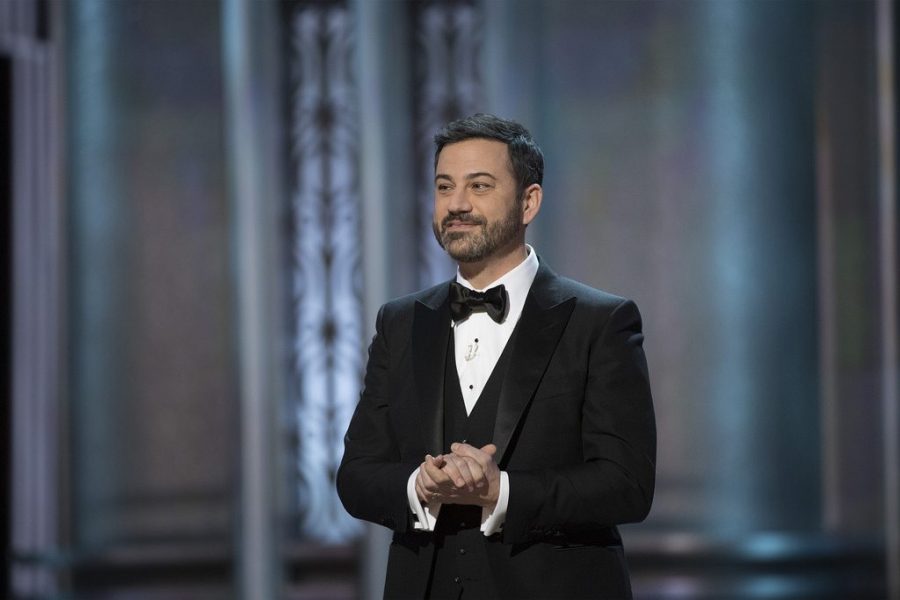Coming in to this year’s Academy Awards, one question loomed large: how will the ceremony respond to a year of turbulent political change both in Hollywood and Washington? The answer: rather awkwardly. Even in Jimmy Kimmel’s funny opening monologue, the correct response to the Weinstein scandal and the #MeToo movement felt elusive. Most acknowledgements of theses issues felt perfunctory, like eating asparagus with America watching. It set the tone for a night of television that constantly questioned its own utility in an increasingly unstable world.
This was a ceremony that wanted to address current events and signify that real change was on the horizon, except when it wanted to be a celebration of movies itself, leaving politics at the door. It was a ceremony that wanted to prove that awarding abusers would no longer be tolerated, except when it wanted to award abusers. It was a ceremony that wanted to prove its cultural and artistic relevancy, except when it wanted to ignore the films that could theoretically make that happen. Acclaimed groundbreaking films such as “Lady Bird,” “Get Out,” and “Call Me By Your Name” either underperformed or were shut out entirely.
Even the night’s biggest winner, “The Shape of Water,” is indicative of the Academy Awards’ curious hedge betting. On the one hand, the film does feel like a step forward from typical Oscar bait. Director Guillermo del Toro is outside of the Hollywood mainstream and the film features a complicated female protagonist. It is a genre film, breaking with the Academy’s infatuation with historical fiction and character drama. Substantively, “The Shape of Water” is certainly a departure from the norm, combining classical influences, dark allegory and, as seemingly every comedian on Twitter gleefully pointed out, fish sex.
After a night with precious few upsets, “The Shape of Water” did have an air of disappointing inevitability. After last year’s Best Picture fiasco, this moment of victory was a relative anticlimax, especially because “The Shape of Water” is a movie that is hard to get excited about. Del Toro’s work is creative and technically accomplished and the cast is uniformly excellent, but as a whole the film feels a few paces removed from the zeitgeist. Unlike “Get Out” or “The Post,” you have to squint pretty hard to find commentary on our current political climate through the fairy tale layers of “The Shape of Water.” It’s certainly possible that some voters viewed this film, whose main characters are a disabled woman, a gay man and a black woman, and considered it a rebuke to Trump’s America, but it seems just as likely that the Academy elected to reward escapism. “The Shape of Water,” is a vehicle for transcendence and joy, and that narrative probably holds a lot of value to the Academy. After all, the ceremony is largely designed to advocate for cinema itself and leaving your troubles at the door is a much better sales pitch than seeing your troubles in IMAX. Still, I can’t help but feel that rewarding this particular film at this particular time is a cop out. “The Shape of Water” is a film that almost nobody hates but very few people totally love.
Though political grandstanding at awards shows can easily turn preachy and indulgent, at this ceremony they felt like lights in the dark. The speeches that made any kind of social statement, such as the creators of “Coco” thanking their same-sex partners or Frances McDormand giving a shout out to inclusion riders, had the most staying power. The montage celebrating recent achievements by women and racial minorities in film was genuinely inspiring, but — perhaps — the best moment of the night was not meant to be taken seriously at all. Tiffany Haddish and Maya Rudolph presented the award for Best Documentary Short Subject and promptly stole the show. After wondering aloud if some people would find the Oscars “too black,” they joked that behind-the-scenes, the ceremony was still plenty white. It was sharp, creative and engaging in a way the rest of the ceremony was unable to manage. If we cannot manage to let a woman run the country, we should at least let two of them run the Oscars.
j.petersen@ustudentmedia.com
@TheChrony


